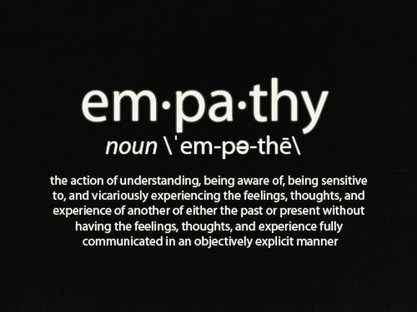 In 1 Kings 3, the story is told of a young man named Solomon. His father, King David, had just relinquished the crown and announced to the world his selection for a successor: Solomon was about to go to the next level. On the verge of his promotion, God visited Solomon in a dream and asked him a question. Essentially, God said, “Solomon, as you become king over my people, ask what you want from me, and I will give it to you.” His response is an extremely important lesson for all who aspire to the next level. Solomon did not ask for greatness. He did not seek success, prosperity, power, or wealth. Instead, Solomon asked God to change something about himself. He said, “Give to Your servant an understanding heart to judge Your people, that I may discern between good and evil. For who is able to judge this great people of Yours?” Solomon knew there was something lacking in himself. Moreover, he knew that if he were to receive all the wealth and power that came with being king—because of his lack of wisdom—he would ruin it. Even worse, all that wealth and power would ruin him. If God were to ask you the “Solomon Question,” what would your response be? To find the true answer, simply look at what you’re already praying for. Many emerging leaders are praying for a greater anointing, a bigger church, more people, more finances, greater resources, etc., etc. Some believe they should be successful business owners, so they are seeking financial enlargement. Others believe they are called to preach to thousands, so they are praying for an international ministry. Still others believe they should have broader influence, wider connections, or a larger network, so they are seeking opportunities to bring it to pass. But what we need to realize, like Solomon, is that if God does not do something “in us” first, then we will ruin and destroy that thing God gives to us. Even worse, that enlargement and success could destroy and ruin us—as it has ruined so many before us. Fuller Theological Seminary Professor J. Robert Clinton researched the lives of biblical leaders over the scope of their careers. Of more than three hundred leaders in the Bible, approximately one hundred had sufficient information available to study their careers. This included Old Testament patriarchs, priests, and military leaders as various New Testament leaders. He concluded that only 30 percent of these leaders in the Bible finished well. In other words, 70 percent did not. That means only 1 out of 3 biblical leaders finished well and remained strong and productive for the Lord to the end. The point is this: Many leaders arrive at the next level unprepared. Sure, they may have powerful gifts, a great education, and impressive credentials, but they often lack a foundation of character to support them through the struggles. And the struggles will come. Higher levels bring higher devils. The good news is you don’t have to be numbered among the 70 to 80 percent who don’t finish well. You can be a part of the 20 to 30 percent who overcome. Solomon shows us the key. When offered the opportunity to receive from God anything he desired, he realized what he needed most was to be prepared—internally. His concern was for his character. His priority was for his inward capacity. His foundation of wisdom, integrity, humility and purity had to be enlarged in order to support the external enlargement before him. As a result, God considered him qualified for the next level and, first, enlarged his character, and then his scope of influence beyond anything he could imagine. As we aspire to the next level, our focus should not be on the outward benefits we may receive, but the inward matters of the heart. What is the condition of our integrity? How prevalent is our humility? Do we demonstrate servanthood and selflessness? Do we act out of pure motives, seeking only the glory of God, or do we hope to achieve something for our own ego? These are the issues that must precede our promotion and be firmly fixed in our character. For those going upward, to the next level, I want to suggest a new way of praying. Instead of seeking success, resources, more people, and more money, we should pray like Solomon. Ask God to enlarge your foundation of character first, to support the weight and pressure being added by the next level awaiting you. In fact, I challenge you to ask Him to stop your enlargement, to prevent you from being promoted if your character is not deep enough to support that promotion. “Heavenly Father, I thank you for the call You have placed on my life and the enlargement I have experienced so far. However, I acknowledge that there are fractures in my character that threaten to destroy my life and all You have built. I ask you now, in the Name of Jesus, to repair these fractures before taking me to the next level. “Until these fault lines in my character have been restored, do not allow me to be promoted to the next level. Stop my promotion if my character has not been prepared to bare the pressures that come with that promotion. Enlarge my character first, and prepare me to be that house founded on the Rock, ready support the enlargement you have willed my life.” For more information on surviving your enlargement, check out my latest book, UPWARD: Taking Your Life to the Next Level now available on Amazon. THE WISDOM OF ABIGAIL: A MODEL FOR GOOD PEOPLE SKILLS People Skill #7: The Power to Persuade5/15/2017
 Have you ever needed to persuade someone to do something? Whether it’s getting a colleague to join your team or convincing a toddler to pick up his toys, persuasion is something we all use every day. The difference in our effectiveness goes back to people skills. Some people can persuade rather effortlessly without anyone hardly noticing. Others, however, are persuasion weaklings and ultimately must fall back on the power of the position to force someone to do what they want. An old fable tells the tale of how the wind and the sun decided they had a competition. They wanted to determine, once and for all, who was stronger. For the contest, they agreed that the winner would be the one who could persuade a man to take off his coat. The wind blew and blew, but the man only held on more tightly to his coat. Then the sun brightened its glare and shone gently down upon him. Within minutes, the man—gladly and with great enthusiasm—took off his coat. The moral of the story is clear: You cannot force someone to do something they don’t want to do. In fact, the more you force, the more they hold onto their coat. Instead, the power of persuasion influences them to “want to do” what you want them to do—the way you want them to do it. This is the essence of persuasion: It’s getting others to buy into an idea, and be motivated internally to do it. Remember the sun. Persuasion is exerting such healthy, positive influence that individuals are intrinsically motivated toward a certain course of action. Abigail was powerfully persuasive. She made a suggestion and then influenced David—who was enraged by a sense of vengeance—to relent from his path. David was being driven by a passion. He and his men were armed and dangerous. But one woman, through the power of persuasion, was able to stop an entire army and keep the peace. If Abigail can do it, so can you, but it requires good people skills. For more information on great people skills, check out my latest book, UPWARD: Taking Your Life to the Next Level now available on Amazon. THE WISDOM OF ABIGAIL: A MODEL FOR GOOD PEOPLE SKILLS People Skill #6: The Capacity to Reconcile5/8/2017
 The world is full of Nabals. Even if you’re a David—a man after God’s own heart, anointed as royalty—you will encounter certain antisocial personalities who stir up contention, tear others down, and bring out the worst in people. If you lack the capacity that Abigail had to work through these issues and bring reconciliation, you will remain among the contaminated, made bitter by offense and disqualified for the next level. On the contrary, Abigail’s ability to navigate offense and mediate reconciliation was a crowning achievement that set her on the path to promotion. In my experience as a pastor, the most difficult aspects of life are often conflicts in relationships. On some level, everyone is carrying deep scars from how they were mistreated or deeply offended. Countless people have left churches, quit jobs, and separated from family because they were mad at leaders, upset with friends, or felt betrayed by those they trusted. They only way to survive this turbulent complexity of interpersonal connections is through people skills. Without them, any promotion to the next level will be short-lived, for that next level will certainly bring its own matrix of complex relationships, even more nuanced than those you currently face. With higher levels come not only higher devils, but bigger egos, greater entitlement, and more experience with betrayal. There are five basic conflicts that wound people in relationships. Serving as a pastor has given me the unfortunate opportunity of witnessing these dynamics all too often. I believe, however, that if God’s people are committed to developing biblical people skills, such as loving one another above ourselves, we can overcome each of these following challenges. Conflict #1: When you’re personally offended. Conflict #2: When you have offended someone. Conflict #3: When you take up someone else’s offense. Conflict #4: When encountering a divisive spirit. Conflict #5: When in disagreement with leaders. For more information on “The Five Conflicts that Wound Relationships,” check out my latest book, UPWARD: Taking Your Life to the Next Level now available on Amazon. THE WISDOM OF ABIGAIL: A MODEL FOR GOOD PEOPLE SKILLS People Skill #5: The Presence of Empathy5/1/2017
 Theodore Roosevelt said, “People don’t care how much you know until they know how much you care.” Empathy is the capacity to care. It’s the ability to feel, to genuinely relate to, and understand, what another person is going through, and to get involved in a solution. Empathy is different than sympathy, which only involves feeling a person’s pain. Empathy is doing something about it. Empathy is having a genuine interest in others. People can sense if you’re sincerely concerned about them or if you’re merely patronizing them. If you’re easily distracted while they speak, or interrupt them before they are finished, if you dismiss their opinions or try to force your views upon them, it sends the message that you really don’t care to hear their perspective, nor do you have an interest in understanding them. True empathy is asking thoughtful questions and “listening to understand” the response. It’s being focused and remaining undistracted during conversations. It’s caring enough to remember important facts, such as family issues, sicknesses, special events, and serious needs—and doing something about them. Empathy is showing support to those in need. Everyone around you needs support. Ever since Adam and Eve sinned in the garden and became ashamed, every person who ever lived has carried a sense of shame about themselves and tries to cover-up what they really feel on the inside. Every day, people next to you are struggling with feelings of insecurity and self-doubt. They wonder if they really matter or if their presence truly makes a difference. Inferiority, inadequacy, even self-loathing plagues the human condition. Most people don’t need therapy, they just need a little encouragement. In fact, the best kind of support we can give are simple words of acknowledgment, hope, and appreciation. If you can be an encourager, you can have great people skills. Be generous with encouragement—it’s like verbal sunshine. It has the power to validate and impart worth and significance. Encouragement reassures someone that the work they are doing is meaningful and makes a difference. Try it today. Tell someone how much you appreciate them, how important they are, what you appreciate about them. Be genuine and sincere and see how strong your people skills truly are. For more information on great people skills, check out my latest book, UPWARD: Taking Your Life to the Next Level now available on Amazon. |
Archives
February 2023
Categories
All
It was concerning King Saul that David said, “How the mighty have fallen, and the weapons of war perished.” His was a life that began with great promise and celebration, but ended in miserable failure and humiliation. His life is an example of how the mightiest of leaders fail.
Why do great men and women fall? How do leaders, quick to ascend with such promise of unparalleled success, find themselves awash in disastrous failure and disgrace? More importantly, can the path toward one’s downfall be discerned before it’s too late and be avoided? It is the premise of my newest book, How The Mighty Have Fallen that such a decline can be detected and reversed. The life and leadership career of King Saul, Israel's first king, provides us with a treasury of examples of "what not to do." The below blog post is the first in series of excerpts from the book to examine and avoid Saul's mistakes and find a successful path through leadership. READ AN EXCERPT |
all content on this website is ©GreggTJohnson

 RSS Feed
RSS Feed